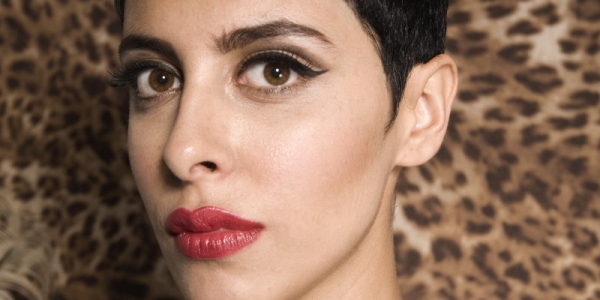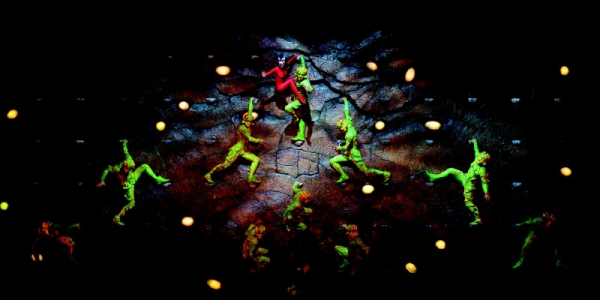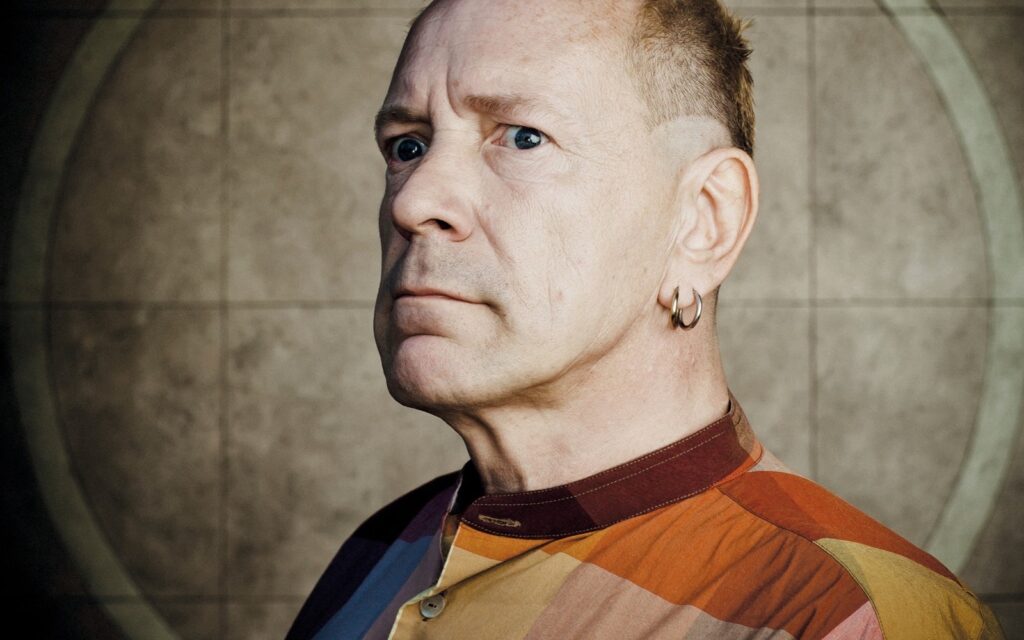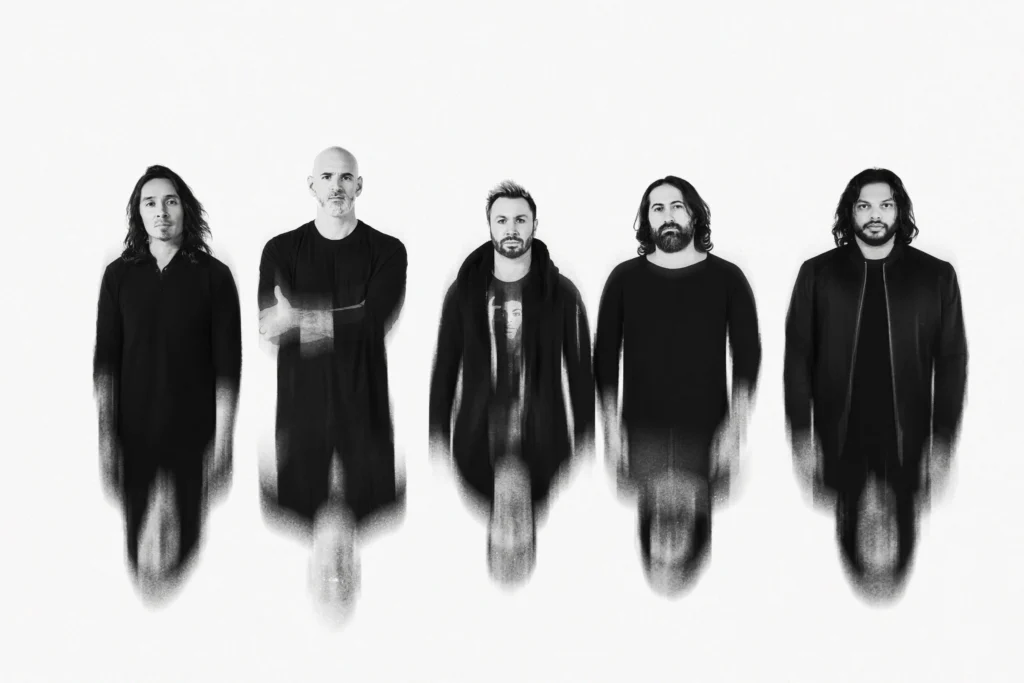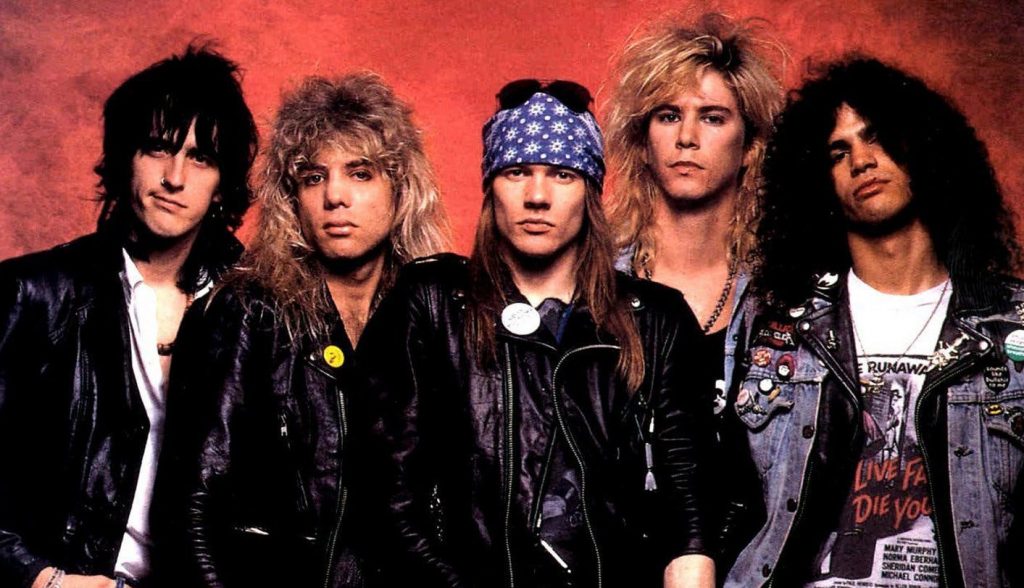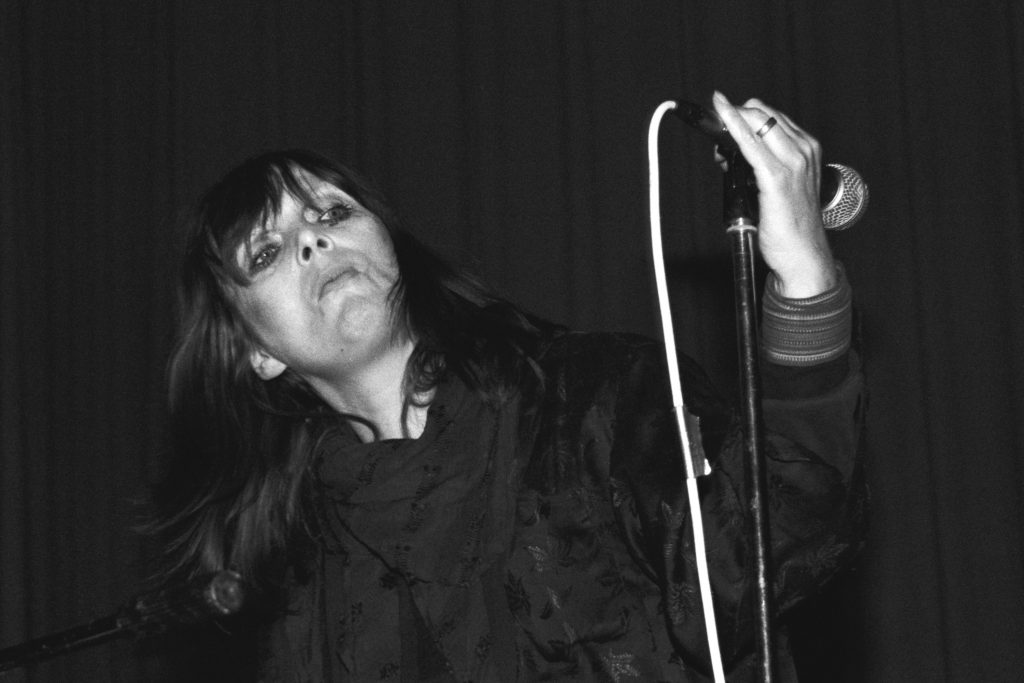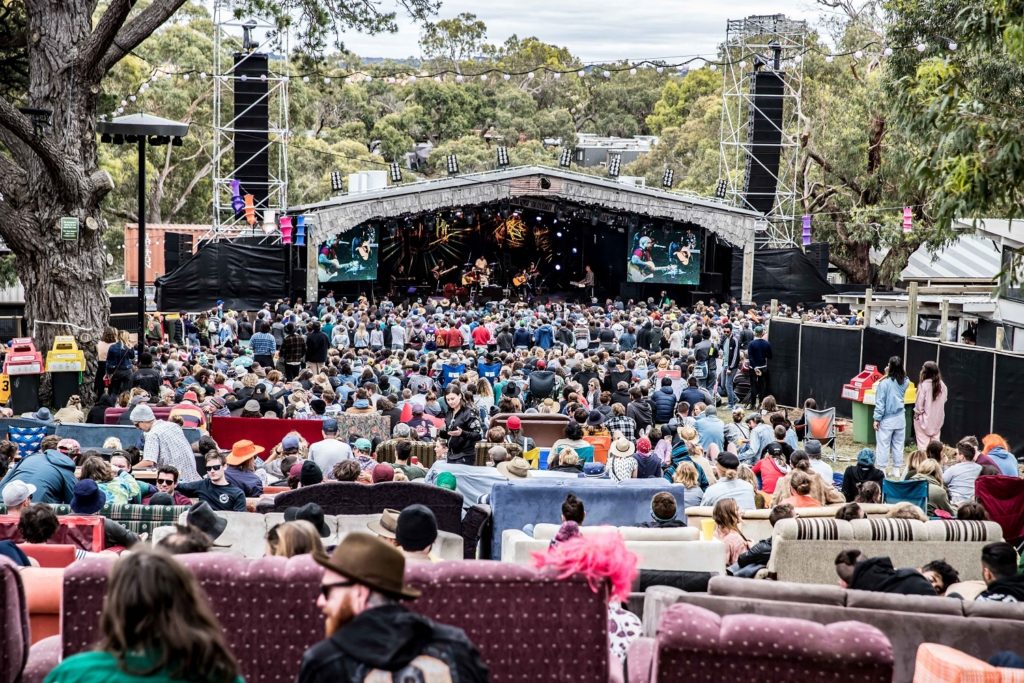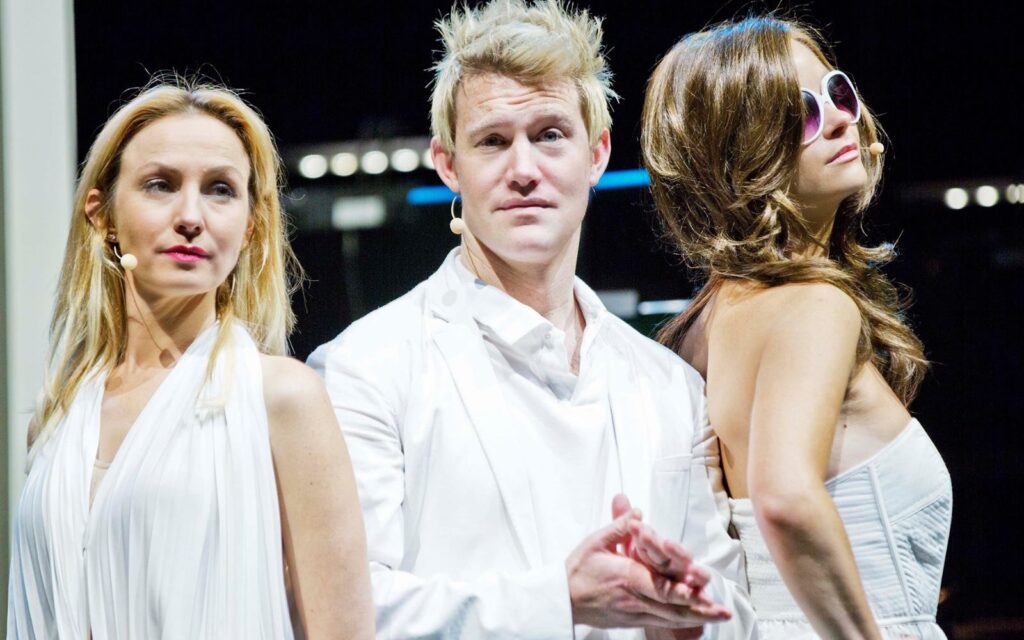When I ask how she feels about this nickname, though, she seems more than a little uneasy. “I don’t really like this comparison too much!” she says with a hearty laugh. “I mean, I really like jazz – it’s cool, it’s great, but it’s a very vintage way of singing. I don’t really love performing in that style. I don’t know why French people call me like this, but you can’t fight it! I guess you just have to let people call you what they want.”
Vega’s musical career began around a decade ago when she met her guitarist and life-long collaborator Max Levegie. “I was studying to be an actress at drama school,” she explains, “although music was also a big passion of mine, and I never wanted to make the choice between the two. Max had just come back from London, where he was working as a studio engineer. We met through his brother, who was a big deal around town, organising lots of concerts and gigs. He was going in the direction of making his own music, and wanted to find a singer to work with; I was enjoying my studies in drama, but at the same time, I was desperate to do something musical, because it felt like my calling. Straight away, it seemed like a good fit between the two of us. We had an immediate connection, and have been working together ever since.”
The pair performed around Lyon as a cover band, although it wasn’t too long before Vega felt the urge to start singing originals. “I wanted songs that were just for me”, she says. “Max began writing original songs, and we met some other young musicians around town who wanted to join us, and from there, it went pretty quickly.” The band would play a show, and inevitably there would be somebody there who would enjoy it and would ask them to play another show somewhere else. “In our first year, I think we must have played 100 gigs or more,” Vega says. “We started to get interest from labels, so throughout that time, we tried to write very, very fast, and to get a show together. That all started eight years ago, and now here I am, talking to you in Australia as we’re about to come down there to play for you!”
Vega’s signature track is La Menteuse, which bounces along on double bass and a breezy acoustic guitar riff, with a typically eccentric vocal at the fore. When I ask what inspired the song, she tells me that the title means ‘The Liar’, and the story is about the dishonest people who sometimes conspire to ruin your life. “Sometimes, you’ll meet a friend who is a really big liar,” she says. “I don’t mean the little lies that people tell every day – I mean huge, pathological lies. I was thinking about that sort of lying when I wrote the song, and the people who tell such big lies.” She hints that the song was inspired by feelings of sadness and betrayal in her personal life, but insists that she wanted the song to be upbeat. “I told Max that I wanted to sing about these feelings, but I didn’t want some gloomy song. I wanted to approach them with the idea of humour, and write something fun.”
Vega has lived a colourful existence, from her drama school days to her whirlwind life as a touring musician, and I ask if she draws on her real life experiences a lot for her lyrics. “Not all the time,” she says. “Sometimes, you know, I want to speak about love in a certain way, sometimes I want to speak about sadness …” she pauses. “Things happen to you in your life, but they’re never quite the same by the time you’ve translated them into song. Sometimes it’s me who comes up with the ideas, and sometimes it’s him (Max) – we have no rules as far as that goes. Sometimes, Max will come and tell me that he’s written a song about drug people or alcoholics, and that he’d be happy if I’d like to sing that. I don’t know those experiences really, but I suppose you can think of it as being an actress; though instead of working for a director, I’m singing and interpreting a song that he has written.”
Vega will bring her live show to Australia this year as part of So Frenchy, So Chic and I ask her what exactly we can expect. “Well, I’m going to be singing all the songs in French,” she explains.” I did think for a time about translating them, but I worried that they might lose some of their spirit. When I speak to people between the songs, however, when I explain the stories behind them, I’ll be speaking in English.” Overall, she says, having fun is her first priority. “I like to dance on stage, to bring the songs to life …the most important thing for me is that the people at the shows go home with a smile.”
BY ALASDAIR DUNCAN
